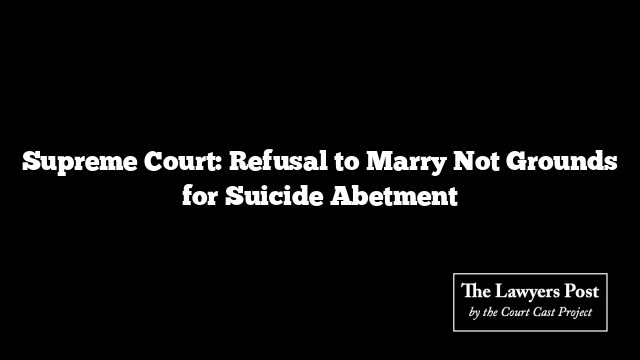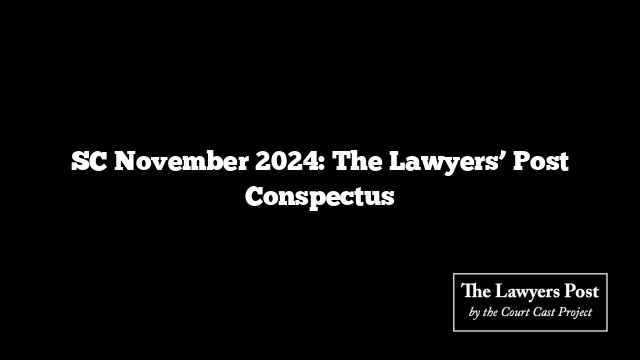In a significant ruling, the Supreme Court overturned the conviction of a man accused of abetting suicide after his lover took her own life following his refusal to marry her. The Court emphasized that a simple rejection of a marriage proposal does not, in itself, constitute provocation or instigation to suicide.
The bench, led by Justice Pankaj Mithal and Justice Ujjal Bhuyan, clarified that for a charge under Section 306 of the Indian Penal Code (IPC), it must be proven that the accused’s actions, through persistent behavior or manipulation, led the deceased to feel there were no alternatives but to take her life.
The Court referred to a previous judgment, highlighting that heartbreaks and the end of relationships are common life experiences, which do not necessarily equate to abetment of suicide. The accused in this case had merely refused to marry the woman, and the Court found no evidence that he had provoked her in any way to end her life.
In a pointed observation, the Court noted that the woman had brought poison with her, already determined to seek a commitment from the man. When he refused, it did not equate to incitement, as the woman had already set her mind on suicide as an ultimatum to her demand.
The ruling reinforced that without clear evidence of intent to provoke or instigate, as well as a lack of mens rea (guilty mind) on the part of the accused, there could be no grounds for conviction under Section 306 IPC. Therefore, the appeal was upheld, and the man’s conviction was quashed.





